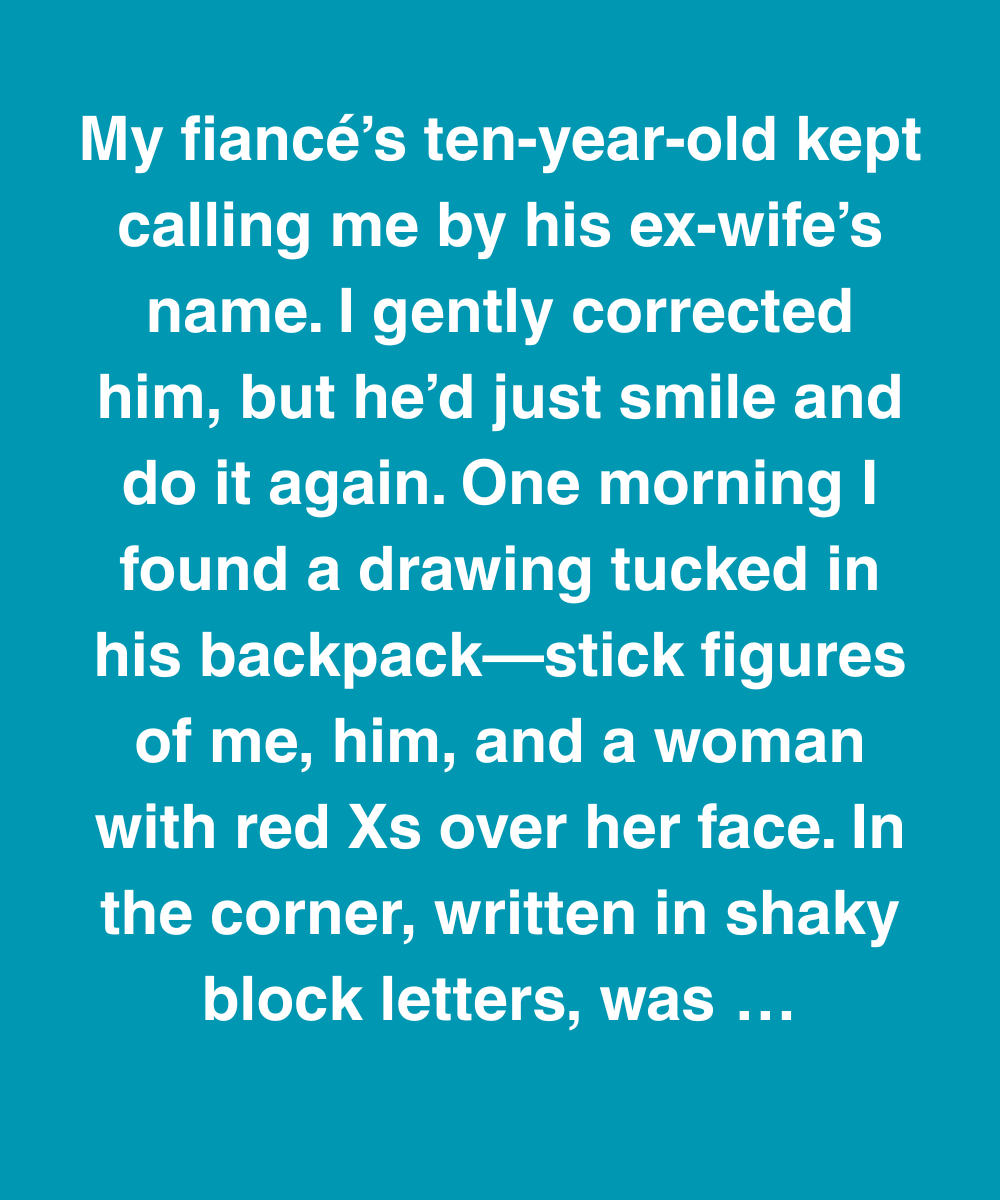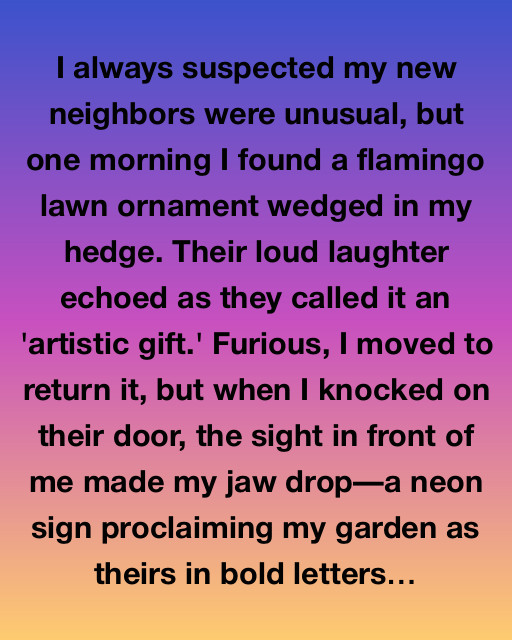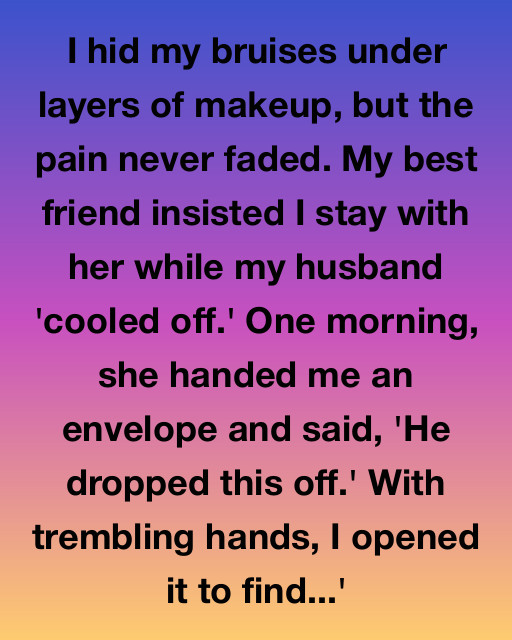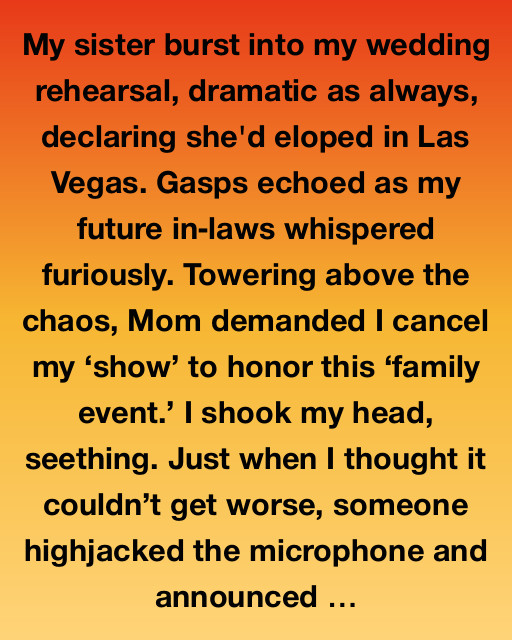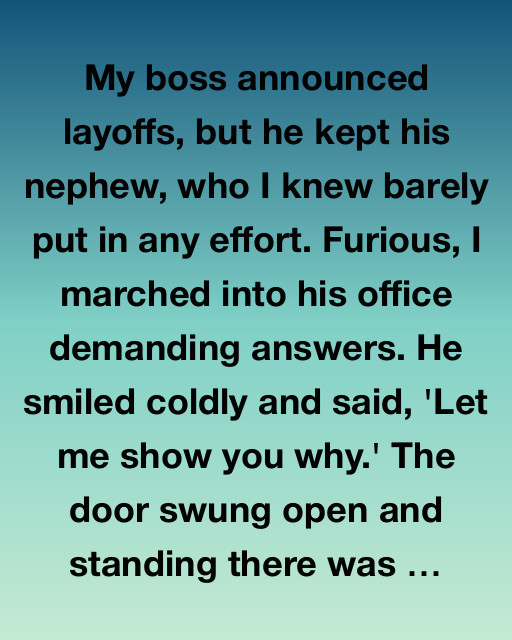My fiancé’s ten-year-old kept calling me by his ex-wife’s name. I gently corrected him, but he’d just smile and do it again. One morning I found a drawing tucked in his backpack—stick figures of me, him, and a woman with red Xs over her face. In the corner, written in shaky block letters, was “GO AWAY MOMMY.”
I stood there in the kitchen staring at it while my coffee went cold. It was clearly me, down to the curly hair and glasses, but the way he’d labeled it—I wasn’t sure if it was meant to hurt, or if he was just confused. I’d only been living with them for two months, and even though I tried to keep things gentle and low-pressure, his walls never really came down.
My fiancé, Rafiq, was sweet about it. He said, “He just needs time. He’s adjusting.” But time wasn’t fixing much. If anything, it was making the gaps between us more obvious.
There were little things that stung—like how he’d refuse to eat anything I cooked unless it came out of a box. Or how he always brought up “how Mommy used to do it,” when it came to bedtime stories or bath routines. I never tried to replace her. That wasn’t my role. But I did want to feel welcome.
That picture, though, changed something. I didn’t show it to Rafiq right away. I just kept thinking about it.
The next week, I noticed he’d drawn a new one. Same three figures—me, him, and the X’d-out woman. But this time, he’d drawn a big angry storm cloud over the woman’s head. And underneath, he wrote: “NOT SAFE.”
This time, I did show it to Rafiq.
He looked at it for a long time and then said quietly, “That’s not you.”
I blinked. “What do you mean? That looks like me—look at the glasses.”
He nodded, slowly. “But you don’t yell. You don’t throw things.”
That’s when my stomach sank. I’d heard some tense stories about his ex, Zahira. She’d had some rough years—custody battles, medication changes, disappearing for a few days at a time. But I never pried. I thought we were all moving forward.
Apparently not.
Later that night, I asked Rafiq if he thought his son, Idris, might benefit from therapy. He hesitated. “He’s already seen a few,” he said. “Didn’t go well.”
But something in those drawings didn’t sit right with me. So I started looking into alternatives—play therapists, art therapists, even just someone who specialized in post-divorce adjustment for kids.
I finally found a local art therapy center that offered one-on-one sessions in a cozy little space near the library. I showed the drawings to the intake counselor, who gently said, “This is definitely a child working through something big.”
Rafiq was reluctant at first. “I don’t want him thinking something’s wrong with him.”
But I explained it like this: “We take kids to doctors when they have a fever. This is just that—for feelings.”
He agreed. And that’s when everything slowly started to shift.
Idris didn’t warm up overnight. The first few sessions, he barely said a word. But he kept going. After a month, he started drawing again—more animals, fewer Xs. He even made a picture of me holding a plate of spaghetti and wrote, “NOT BAD.”
I hung it on the fridge like it was a Picasso.
One night, after a therapy session, he asked me if I wanted to see the pictures he didn’t bring home. I said sure, and he pulled out a folder from his backpack. There were pictures of a woman crying, a woman screaming, and one that made my heart seize—a picture of him curled in a closet while a shadowy figure stood in the doorway.
I didn’t say anything. I just looked at him and asked, “Is that how you used to feel sometimes?”
He nodded, small and serious.
That’s when I realized—it had never been about me. I was just standing in the spot his fear used to live in.
The next time he called me “Mommy”—with a sarcastic little smile—I said, “You know, you can just call me Hana. If that’s easier.”
He blinked. “I know your name. I just like seeing if you’ll get mad.”
I laughed. “Okay, that’s fair.”
That was our truce, in a way. He started calling me “Miss Hana” after that, which made me feel like a kindergarten teacher, but also oddly respected.
Then, out of nowhere, Zahira called.
Rafiq had kept communication minimal, mostly through legal channels. But now she wanted to see Idris. “I’m in a better place,” she said. “I’ve been clean for eight months.”
I didn’t know what to think. Part of me was terrified she’d undo all the progress. But another part knew this wasn’t my call.
Rafiq was torn. He wanted Idris to have his mother in his life—if it was safe.
They agreed to a supervised visit at a community center downtown. Rafiq went with him, and I stayed back, pacing and folding laundry I didn’t even remember washing.
When they came back, Idris didn’t say much. He just handed me a crumpled napkin with a smiley face drawn on it.
“She brought snacks,” he said. “Didn’t yell.”
That was his version of a rave review.
The visits continued—slow and structured. And I started to see Zahira differently. She sent thank-you texts. She apologized, in her own stumbling way, for the years that broke things.
Then, one Saturday, Idris came home with a new drawing—three stick figures again. This time, one had curly hair, one had long straight hair, and one had short curls with a cap. Underneath, he wrote all our names: “ME, MOMMY, MISS HANA.”
No Xs.
I taped that one above my desk.
The biggest surprise came three months later. Idris asked if Zahira could come to his school recital. “Only if Miss Hana comes too.”
So we all went—me, Rafiq, and Zahira. I sat on one side of him. She sat on the other.
It was awkward. I won’t lie.
But after his performance, we both stood and clapped. And I caught her looking at me. “Thank you,” she mouthed.
It wasn’t a tearful movie scene. Just a nod between two women who both loved the same kid.
Later that night, Idris sat at the kitchen table scribbling away. When he showed me the picture, it was all of us at a picnic. No clouds, no Xs, just blue skies and sandwiches. “I made enough room for everyone,” he said.
Sometimes, healing doesn’t look dramatic. It just looks like space being made where pain used to sit.
Rafiq and I got married quietly, in a garden behind his uncle’s restaurant. Idris was our ring bearer and told everyone he had two moms now. Zahira laughed and said, “One’s enough, kid.”
But she said it with a smile.
Here’s the thing no one tells you about step-parenting: the wins are small, and the losses feel personal. But when you stop trying to be everything and just try to be safe, something incredible happens.
You get let in.
Even if just through a crayon drawing.
If you made it this far, thanks for reading. ❤️
Like and share if you believe family can look like all kinds of beautiful.
